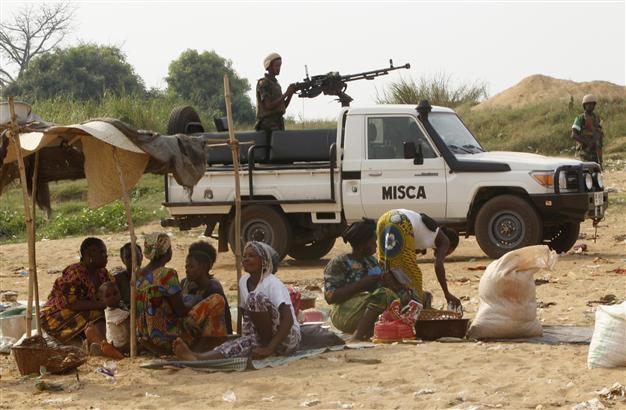1.6 million Central Africans in 'urgent' need of food: UN
ROME - Agence France-Presse

REUTERS Photo
The crisis in the strife-torn Central African Republic has left 1.6 million people -- a third of the population -- in urgent need of food, the United Nations said Monday.Thousands of people have been killed in a wave of sectarian violence across the Central African Republic that has lasted for more than a year, despite the presence of African Union and French peacekeeping troops.
The UN's Food and Agriculture Organisation (FAO) and World Food Programme (WFP) said the widespread conflict had "caused the destruction of livelihoods, loss of food and cash crops, livestock and crucial productive assets across the country."
"About 1.6 million people directly affected by the crisis are in need of urgent food," the UN agencies warned in a report.
Tens of thousands of Muslims have been forced to flee their homes in the Christian-majority country of 4.6 million in a cycle of tit-for-tat violence.
UN Secretary General Ban Ki-moon, who has called for 12,000 UN peacekeepers to be deployed across the CAR, warned on Saturday that "ethno-religious cleansing" was being conducted in the country.
Ban has urged the international community to provide the extra funds and troops needed for a force UN force sufficient to stem the chaos that broke out when after a March 2013 coup by the mainly Muslim Seleka rebels.
But some member states are resistant to the idea, with the UN already struggling to raise the funds needed to provide basic assistance to the population.
Monday's report said a "long and expensive" humanitarian operation was needed to stem the growing toll, and start rebuilding livelihoods in a country heavily dependent on farming.
Agriculture provides some 57 percent of the CAR's gross domestic product and has been hard-hit by the crisis, contracting by nearly 37 percent in 2013.
"First and foremost, we need to see the violence stop. At the same time, we need to help save lives and rebuild livelihoods," said Arif Husain, chief economist at WFP.
"Every passing day only makes emergency assistance more difficult and more expensive and leads to the loss of more innocent lives."
















